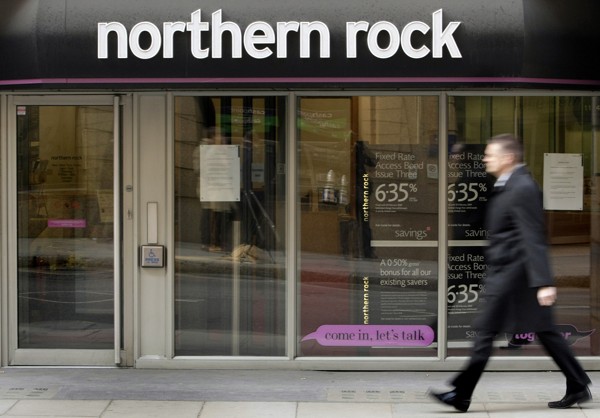
The real estate investment industry’s most important lessons from 2007’s financial crash
Risk, particularly, must never again come at the expense of responsible investment
Ten years on from the global financial crisis, risk must never again come at the expense of responsible investment.
This year has been full of tenth-anniversary stories marking the start of the global financial crisis and the painful memories it dredges up for many.
From the run on Northern Rock bank in the UK, to Bear Stearns’ profits collapsing in the US, 2017 has given us plenty of reminders of those dark days a decade ago.
And the role of real estate investment within that crisis cannot be forgotten.
Investors then had a far-simpler approach to risk management, welcoming more and more risk in the perennial search for greater returns.
This lax attitude and the endemic spread of over-leveraged portfolios took the entire system to the edge of collapse.

Our industry has changed a great deal since then. Risk management is given much more attention now than it was a decade ago. Specialist teams have grown, investors now make better use of research within the risk-management process and we’ve seen the introduction of new, effective quantitative modelling techniques.
Indeed, 90 per cent of senior investors we asked as part of our Global Investment Risk Perspectives 2017 report, released this month, thought the global financial crash of 2007/8 had acted as a catalyst for positive change in the field of risk management.
But challenges remain. We are seeing compressed yields in many major markets once again.
Some are even trading on yields close to all-time lows. These, combined with new all-time highs in real estate investment volumes, have pulled investors further up the risk curve in a bid for greater returns.

This can’t be ignored and has led to a boom in investment in alternative assets. Hotels, student accommodation and purpose-built rental blocks, for instance, are all attracting unprecedented levels of investment from companies looking to carve out a new niche.
In Hong Kong, we see this same trend with increased competition from mainland developers pushing land prices up massively. This has forced local developers and investors to look at creating new schemes within the shells of existing buildings in central districts.
This, coupled with a drive to secondary locations, is fundamentally changing the risk profile of investment portfolios, moving the dial into uncharted territory.
Over half (57 per cent) of the investors surveyed for the report expressed concern about being pushed into a drift away from their traditional investment strategies because of this rush into alternative assets.
Risk is, and always will be, an essential part of any investment. But that must never come at the expense of responsible practice, which is vital to ensuring global stability.
Of our respondents, 57 per cent said their risk management processes are mainly driven by performance, with only a quarter pointing to compliance.
The prevalence of riskier investments, especially, are not the only emerging challenge.
Automation of services, the rise in e-commerce and the enormous potential of artificial intelligence are all hugely disruptive trends that the real estate sector is having to grapple with. And investors have had to work hard to build resilience into their decisions.
In the face of all this, it’s important the lessons of 10 years ago, and all the improvements since then, are not forgotten.
Martin J Bruhl FRICS, chair of the RICS Investment Risk Forum and Chief Investment Officer at Union Investment Real Estate
